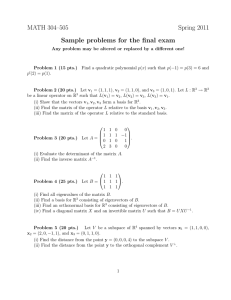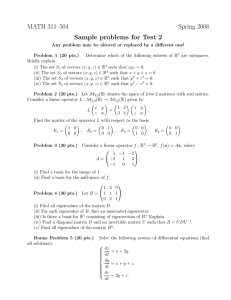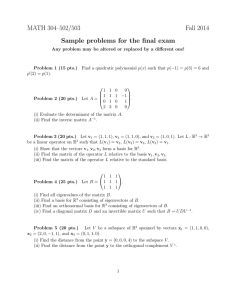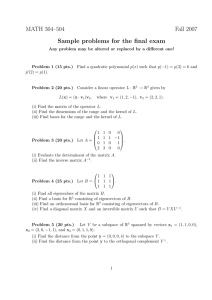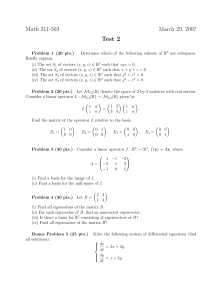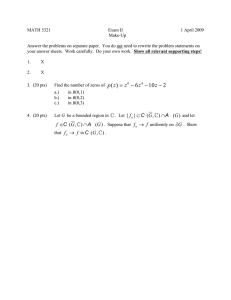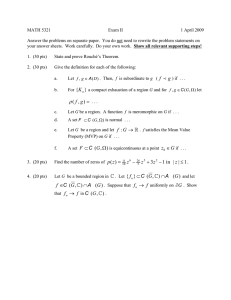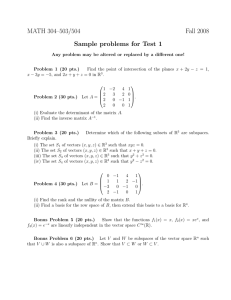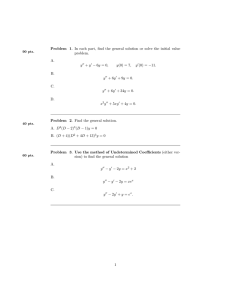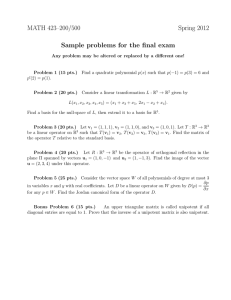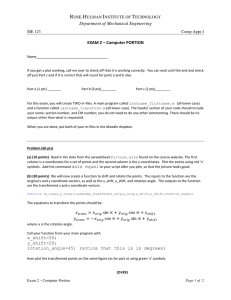MATH 311–504 May 7, 2008 Final exam
advertisement
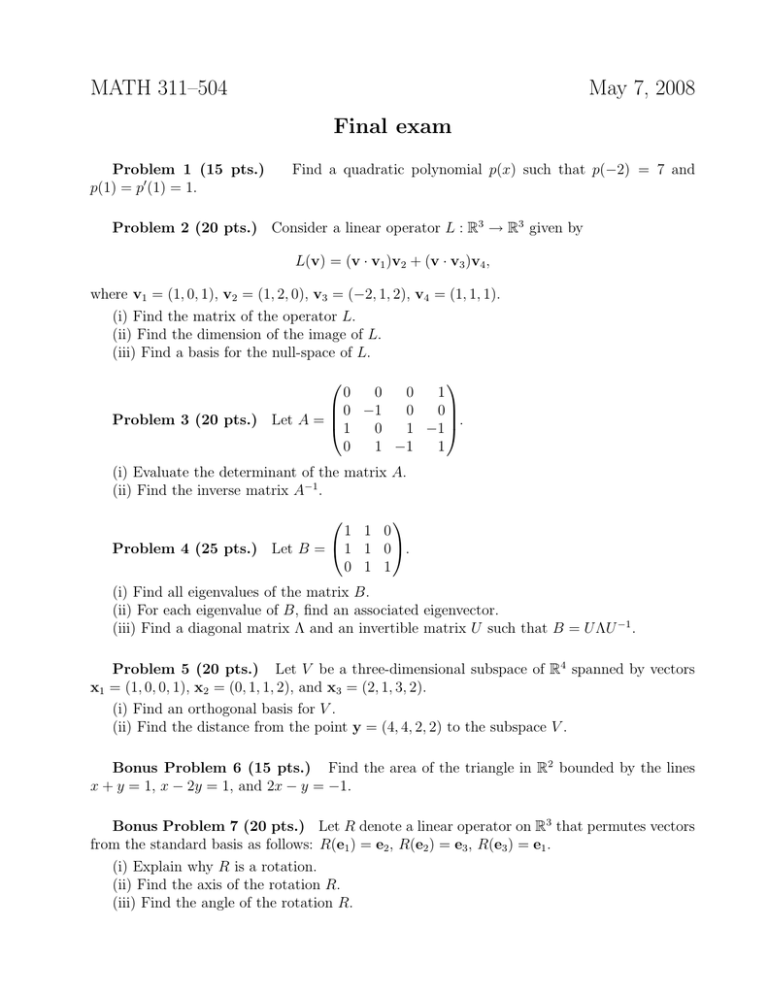
MATH 311–504 May 7, 2008 Final exam Problem 1 (15 pts.) p(1) = p′ (1) = 1. Find a quadratic polynomial p(x) such that p(−2) = 7 and Problem 2 (20 pts.) Consider a linear operator L : R3 → R3 given by L(v) = (v · v1 )v2 + (v · v3 )v4 , where v1 = (1, 0, 1), v2 = (1, 2, 0), v3 = (−2, 1, 2), v4 = (1, 1, 1). (i) Find the matrix of the operator L. (ii) Find the dimension of the image of L. (iii) Find a basis for the null-space of L. 0 0 0 1 0 −1 0 0 . Problem 3 (20 pts.) Let A = 1 0 1 −1 0 1 −1 1 (i) Evaluate the determinant of the matrix A. (ii) Find the inverse matrix A−1 . 1 1 0 Problem 4 (25 pts.) Let B = 1 1 0 . 0 1 1 (i) Find all eigenvalues of the matrix B. (ii) For each eigenvalue of B, find an associated eigenvector. (iii) Find a diagonal matrix Λ and an invertible matrix U such that B = UΛU −1 . Problem 5 (20 pts.) Let V be a three-dimensional subspace of R4 spanned by vectors x1 = (1, 0, 0, 1), x2 = (0, 1, 1, 2), and x3 = (2, 1, 3, 2). (i) Find an orthogonal basis for V . (ii) Find the distance from the point y = (4, 4, 2, 2) to the subspace V . Bonus Problem 6 (15 pts.) Find the area of the triangle in R2 bounded by the lines x + y = 1, x − 2y = 1, and 2x − y = −1. Bonus Problem 7 (20 pts.) Let R denote a linear operator on R3 that permutes vectors from the standard basis as follows: R(e1 ) = e2 , R(e2 ) = e3 , R(e3 ) = e1 . (i) Explain why R is a rotation. (ii) Find the axis of the rotation R. (iii) Find the angle of the rotation R.
